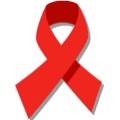Ira Dreyfuss: Each month on AIDS.gov we will have conversations with senior domestic government officials on topics impacting the lives of those living with HIV/AIDS.
Today we will be speaking with David Vos, from the U.S. Department of Housing and Urban Development. Mr. Vos welcome, and thank you for joining us today.
David Vos: And thank you.
Ira Dreyfuss: What is your role at the U.S. Department of Housing and Urban Development?
David Vos: I serve as the Director of HUD's office of HIV/AIDS housing. It's an office that oversees the HOPWA program, Housing Opportunities for Persons with AIDS, and this is a grant program that states and cities use to work with nonprofits to provide housing support to our client population. Ira Dreyfuss: Would you please describe the housing needs of people living with HIV/AIDS?
David Vos: Sure. There's a range of needs stemming from homelessness, where persons are on the streets or in shelters, and have immediate, pressing needs, to persons who have really affordable housing challenges, such as not being able to meet their monthly rent, or not having their own arrangement—they're doubled up with family and friends and need their own place. And this is very important because housing is a base to receive the care that's available through the programs from the other departments. Ira Dreyfuss: And, does the problem of stigma which is sometimes attached to AIDS patients, play into this?
David Vos: Sure, and in some cases AIDS is a barrier because people fear it, and people lose their connections to family, friends. They may have lost their jobs because of health crises, so it's a big issue and needs to be addressed. Ira Dreyfuss: How does HUD help to meet the need?
David Vos: Well, one thing at HUD is we have fair housing. We can help protect people against discrimination on the basis of HIV/AIDS in housing accommodations. The other is through education, and working together in the community to make sure our programs are understood, and the needs of our clients are seen clearly by public officials, and by the public themselves.
Ira Dreyfuss: And, how would a person with HIV/AIDS get into the pipeline?
David Vos: Well, if you don't know the persons in your community, that run housing programs, you can find out. There are network organizations, you can go to websites, we have programs across the country, largely through nonprofits that do housing support, but the cities and states themselves have housing offices, and will know enough about this to connect you.
Ira Dreyfuss: What actions would you like public health and housing officials to take, or, continue to take, to address these needs?
David Vos: We can work in strong partnerships. Housing and support programs are out there. We need to work in a community to make sure they're working closely together- the nonprofits, the government agencies, the health agencies. The other is, we need to think about the individual and the family, and work to make sure they can access the care. We have so many different programs- it's not so easy for them to understand them, to access them. We can use case management and better planning to make that work. And lastly, there are a lot of programs that are working. We have a lot of success, and the housing and support available is making a difference in a lot of lives, and so, let's help others connect to that too. To learn more about HIV/AIDS housing resources, please visit AIDS.gov's Housing Initiatives page»

